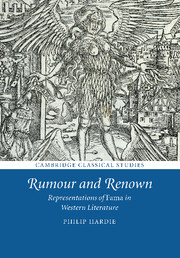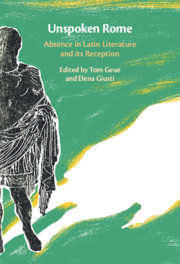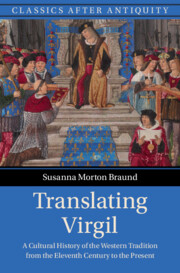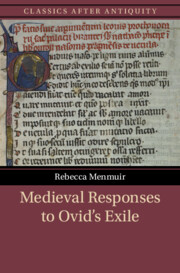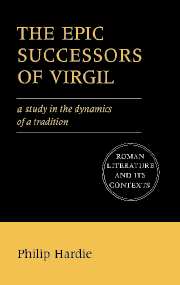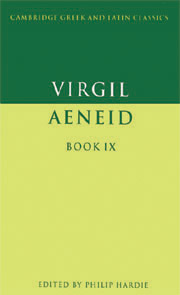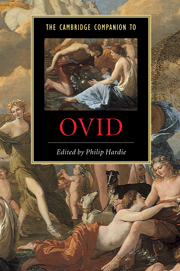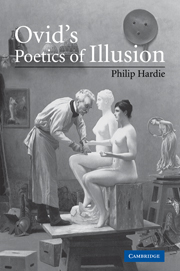Rumour and Renown
The Latin word fama means 'rumour', 'report', 'tradition', as well as modern English 'fame' or 'renown'. This magisterial and groundbreaking study in the literary and cultural history of rumour and renown, by one of the most influential living critics of Latin poetry, examines the intricate dynamics of their representations from Homer to Alexander Pope, with a focus on the power struggles played out within attempts to control the word, both spoken and written. Central are the personifications of Fama in Virgil and Ovid and the rich progeny spawned by them, but the book focuses on a wide range of genres other than epic, and on a variety of modes of narrating, dramatising, critiquing and illustrating fama. Authors given detailed readings include Livy, Tacitus, Petrarch, Chaucer, Spenser, Shakespeare, Ben Jonson and Milton.
- Magisterial survey of literary treatments of rumour and renown from Homer to the eighteenth century by one of the most influential Latinists alive today
- Shows how some central ancient texts inform the works of central post-classical authors
- All passages in foreign languages in the main text are translated, thereby making the book accessible to all students of literature
Reviews & endorsements
'… [a] magnum opus, a magisterial work of learning that aims to offer a comprehensive picture of the ever-changing Fama, the personified Rumor, from its Greek origins through Virgil, Ovid, and beyond … Without exaggeration, this is a must-read book, and what I hope to offer here is but a glimpse of its rich, stimulating, and highly rewarding contents … Beyond doubt, this volume is the result of many years of research; the production is handsome and flawless. It has already taken a special place on my bookshelf, and as I am sure, on the shelves of many readers and students of Latin literature and its reception.' Antony Augoustakis, Bryn Mawr Classical Review
'… monumental …' Niklas Holzberg, Classical World
'This monumental tome does more than merely distil and deliver insights into the workings of Fama; it takes the reader on a gripping journey through the highways and byways of her literary (and eventually artistic) representation.' Jane Heath, The Expository Times
'Impressive for the breadth of its coverage of so many authors and works across so many literary epochs, this study of representations of Fama in the Western tradition nevertheless combines that vastness of scale with Hardie's characteristic acuity as a close reader of text (text that extends in this case far beyond the Greco-Roman canon). The book is also beautifully produced, with ample margins, thirty-seven illustrations, thirty-six pages of bibliography and thorough indices of passages discussed and of general subjects.' Gareth Williams, The Journal of Roman Studies
Product details
February 2012Hardback
9780521620888
706 pages
253 × 185 × 38 mm
1.54kg
37 b/w illus.
Available
Table of Contents
- 1. Introduction
- 2. Hesiod and Homer: Virgilian beginnings
- 3. Virgil's Fama
- 4. Fame and defamation in the Aeneid
- 5. Ovid: Metamorphoses
- 6. Later epic: Lucan, Statius, Valerius Flaccus, Nonnus
- 7. Roman historiography I: Livy
- 8. Roman historiography II: Tacitus
- 9. Fama and Amor
- 10. Fame and blame: Spenser
- 11. Christian conversions of Fama
- 12. Petrarch: Trionfi, Africa
- 13. Fama and power in early modern England: Shakespeare, Ben Jonson
- 14. Milton: Samson Agonistes
- 15. Plots of fame: Chaucer, Alexander Pope
- 16. Visual representations of Fama.

